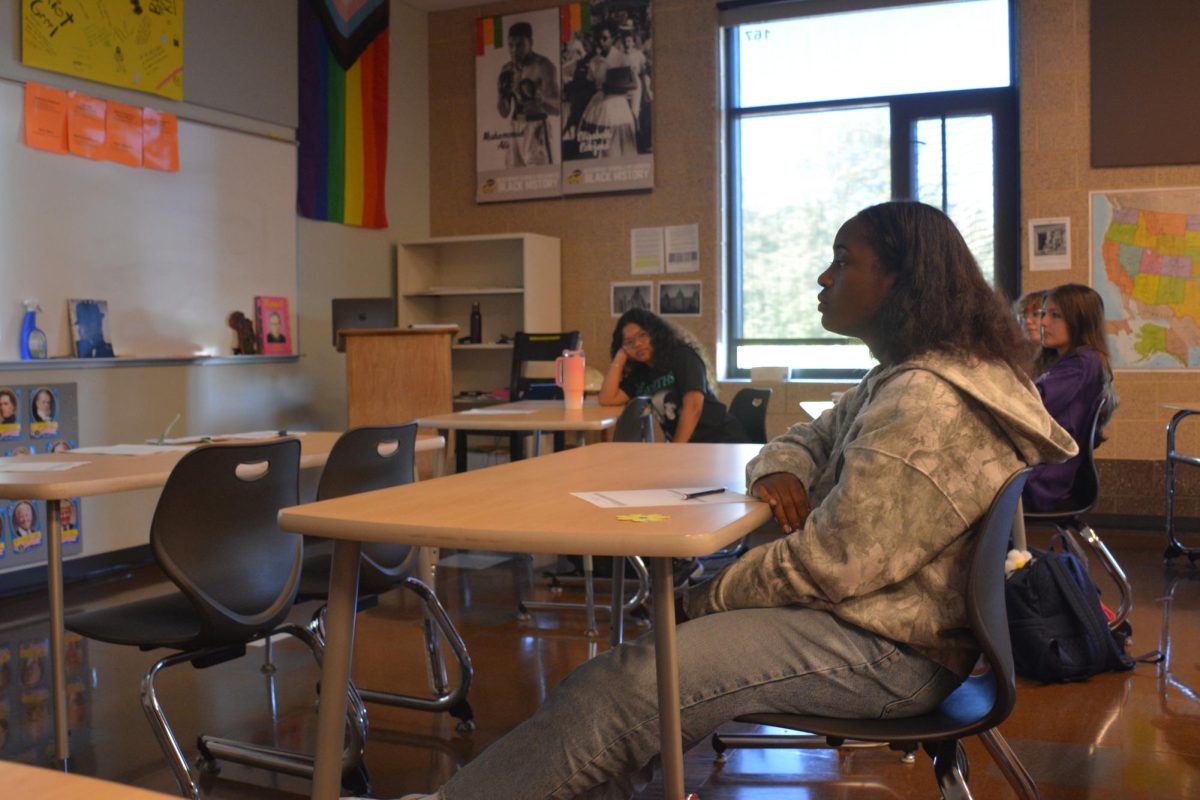Republicans made big gains in the November election, both at the state and federal levels, and they seem poised to enact dramatic changes in education.
In Ohio, the Republican controlled-government has already made sweeping changes: transforming the state Dept. of Education, sending public money to private schools and pushing back against Diversity, Equity and Inclusion (DEI) initiatives.
The Trump administration seems ready to follow suit.
In 2023, Ohio Governor Mike DeWine signed House Bill 33, transferring the majority of the state Board of Education’s power to a governor-appointed director that appoints deputy directors and transforming what was previously the Ohio Department of Education to the Ohio Department of Education and Workforce. Several board members filed a lawsuit, alleging that the action was unconstitutional.
One judge issued a temporary restraining order while another allowed the overhaul to go forward. According to EducationWeek, DeWine’s overhaul is part of an overarching trend for governors to gain more control over schools.
“The education process [is meant to prepare] young people for whatever it is that they do next. There’s [a] connection between [education and the workforce], and I think that’s what the administration and the legislature was trying to do in reconstructing that part of state government in that way,” Mike Dovilla, Republican Ohio State Representative for OH-17 told The Beachcomber.
Ohio has also sent a lot of public money to private and charter schools through school-choice programs.
In 2024, the state spent almost a billion dollars on private school voucher scholarships.
“I think this does have potentially a negative impact on students… when you have close to a billion dollars in public money that’s going to private schools, that means a billion dollars in state money that’s not available to meet the needs of the nearly 90% of kids that attend our public schools,” Ohio Education Association President Scott DiMauro told the Ohio Capital Journal.
Ohio’s Republican leadership, including newly-elected Speaker of the House Matt Huffman, has consistently resisted providing more accountability to private schools receiving public money.
On Jan. 8, Huffman discussed cutting back on a public school funding formula passed in 2021 that was aimed at creating more equitable funding in the state. Huffman described the funding as “unsustainable.” Superintendents of Parma and Medina City Schools argued that cutting state funding would disproportionately impact lower-income communities and would result in the cutting of employees and programs beneficial for students.
Ohio has also been a battleground for DEI issues, such as the rights of transgender students in school.
On April 23 2024, Ohio House Bill 68 became law, banning transgender minors from receiving gender-affirming medical care and competing against their gender identity in sports.
Some students at Beachwood are directly impacted by anti-transgender legislation.
“One of my closest friends isn’t allowed to race anymore because of [House Bill 68], and this makes me really upset because now they can’t run because of who they are,” said junior Sasha Kheyfets.
Following the November election, the Ohio legislature passed additional measures restricting transgender students. On Nov. 27, DeWine signed Ohio House Bill 183, banning transgender students from using school bathrooms and locker rooms that align with their gender identity.
“It’s very reminiscent of [how] gay marriage was used as a wedge to get people to vote a certain way, and it was all about fear [and] hateful, hateful rhetoric,” said Wendy Leatherberry, member of the Beachwood Board of Education. “It’s really scary, because [transgender teenagers] are inherently vulnerable, and the last thing they need is people spreading hateful rumors and things to make people afraid of them.”
On Jan. 8, DeWine signed House Bill 8 into law, requiring public schools to notify parents of “sexuality content” and to provide them with alternative options. The bill also bans “sexuality content” from being taught to students from kindergarten to the third grade and requires schools to approve board policy regarding students attending religious instruction during school hours.
“I worry that teachers may be too fearful of teaching or saying the wrong thing,” said Pam Crossman, social studies teacher and president of the Beachwood Federation of Teachers. “This might debilitate them so much that they unintentionally ostracize certain students. We want all of our students to feel seen and included in the curriculum, and I worry that it may further ostracize kids who already don’t see themselves as the norm.”
In 2023, Republican Ohio Senate member Jerry C. Cirino introduced Senate Bill 83, banning the majority of DEI training in Ohio universities, limiting what unionized faculty members could include in bargaining agreements and changing how tenured faculty are reviewed. Despite this bill having been stalled, the proposed bill may illuminate Republicans’ goals for education in Ohio.
Dovilla believes these issues distract from the core mission of education.
“I think in recent years, education has gotten somewhat distracted on ancillary issues that aren’t core to the educational mission,” he said. “The purpose of education in a republic is to provide for future citizens who can contribute back to their communities. If we’re not providing the tools to ensure that that happens, then we’re really short-changing those who are going through the education system and the taxpayers who are funding it.”
Despite the Ohio legislature’s antipathy to DEI, Beachwood’s Board of Education will attempt to minimize the impact of anti-DEI legislation as much as possible.
“Figuring out how to maintain [DEI initiatives] even as there’s hostility toward them from both the state and federal government is something that we just kind of have to do,” Leatherberry said prior to the passage of HB 8.
Meanwhile, the federal government seems poised to see massive changes coming to education policy as well.
Trump and other members of the GOP have stated their goal of dismantling the U.S. Department of Education (DOE). Following the guidelines written in Project 2025, the GOP is advocating for the redistribution of federal education programs, eliminating some and transferring others to states.
“I say it all the time, I’m dying to get back to do this. We will ultimately eliminate the federal Department of Education,” said Trump in September during a rally in Wisconsin.
In a radio interview, newly-elected Ohio Senator Bernie Moreno supported this action as well.
“We’re going to get rid of some of these agencies that don’t make any sense, like the Department of Education and just move that money to the states.”
Many feel it’s unlikely that the DOE will be entirely removed. Such an action would require congressional approval, possibly needing a supermajority vote in the Senate.
“I think that a lot of educators have been focused on this rumor that the Department of Education is going to be disbanded, and in reality, it’s not as easy as an executive order getting rid of a cabinet department. One person doesn’t have the ability to do that,” said Crossman.
Leatherberry and Crossman believe it’s unlikely that Trump supporters considered the implications of the Republican plan for education when casting their votes.
“I don’t think most people [thought] ‘I’m gonna vote for [Trump] because he’ll eliminate the Department of Education,’” said Leatherberry, who is also president of the Beachwood Democrats.
“People went into the voting booths focused on their day-to-day lives and the bills they have to pay and how expensive things are. I don’t think people really considered the implications on public education when they made their voting choices,” Crossman said.
Although the removal of the DOE may be difficult, it is clear the Trump administration will push their education agenda regardless.
Trump has announced Linda McMahon as his pick for Secretary of Education. Previously an executive at World Wrestling Entertainment (WWE), McMahon has written about her support for school-choice and charter schools.
One role of the U.S. Dept. of Education is to oversee student loans. By calling for increased interest rates and less lenient income-driven repayment plans, Project 2025 could make it more difficult to obtain and pay off student loans, which are currently determined by federal programs such as the Free Application for Federal Student Aid (FAFSA).
Cutting large amounts of funding for schools would harmfully impact education received by low-income, young, and disabled students. Removing the federal government’s role in education can also result in disparities between states. While states such as New York have more resources to spend on K-12 education, states such as Arizona do not.
Project 2025 details plans to diminish the $16 billion Title I program over the next decade. Removing or decreasing the federal funding provided under the Title I program would result in less money spent on resources for low-income students.
Project 2025 also takes aim at Head Start, a federal program that provides childcare and early education to low-income families.
Additionally, according to Education Week, Project 2025 also details plans to convert the $13 billion IDEA program for disabled students to block grants or private school choice. The Heritage Foundation proposes that IDEA funds instead go directly to districts or parents. This would make it difficult to evaluate the effectiveness of the education disabled students receive.
The Ohio General Assembly will consider additional measures to address funding gaps when federal decisions are clarified.
“We want to provide the support that we can for those who need support, but we would need to see what [the federal government does] before determining how the Ohio legislature provides additional appropriations for such gaps,” said Dovilla.
Ultimately, there are a lot of open questions about the Trump administration’s education policies.
“The new administration says that they want to leave education decisions up to states and local communities to decide. At the same time, [they are also] saying we don’t want you to read these books, [and they] don’t want you to learn [select] things,” Crossman said.
It is likely that dynamics between the federal government, states and local communities on education policy will shift in the next few years.
“It begs the question: do you want to leave it up to states and local communities to decide, or do you want to dictate what we can and cannot teach? I’m not fearful that [Beachwood] would start banning books. However, I think that we might be the exception and not the rule nationally,” Crossman continued.

![“One of my closest friends isn’t allowed to race anymore because of [House Bill 68], and this makes me really upset because now they can’t run because of who they are,” junior Sasha Kheyfets said.](https://bcomber.org/wp-content/uploads/2025/01/Screenshot_20250117_081712_Gallery.jpg)
![“My parents have always said that education is important. My parents are Chinese immigrants, I'm Chinese American, [and that's a] value that has always been ingrained in our community,” said Senior Lyndia Zheng, pictured with Tony Zheng](https://bcomber.org/wp-content/uploads/2025/10/DSC_4244.jpg)










